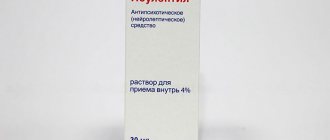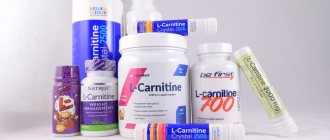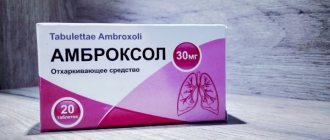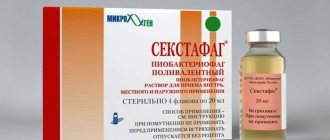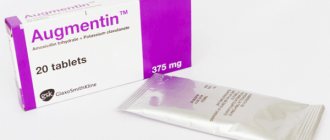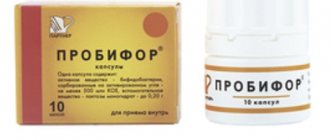Schizophrenia is a polymorphic endogenous mental disorder or a group of mental disorders that are associated with instability of emotional reactions, disintegration of the processes of perception and thinking, as well as reduced or inadequate affect. The most commonly observed manifestations of this disease are fantastical or paranoid delusions, auditory pseudohallucinations, disorganized thinking and speech, social dysfunction and impaired performance.
In the treatment of schizophrenia, cognitive-behavioral, family and occupational therapy, as well as social rehabilitation are used. It should be noted that the main role in the treatment of this disease is played by the use of medications.
What is the drug "Solian"? Instructions for use, reviews report that this is a very good and effective antipsychotic and antipsychotic drug. How this medicine works, whether it has any contraindications and how it should be used will be described below.
Composition, packaging and form of the medicinal product
“Solian” are tablets, round and flat, white or almost white, engraved “AMI 100” (“AMI 200”, “AMI 400”) on one side and a dividing line on the other.
The active ingredient of the medicine in question is amisulpride. The drug also contains auxiliary ingredients in the form of sodium carboxymethyl starch, lactose monohydrate, hypromellose, MCC and magnesium stearate.
All tablets are placed in blisters of 10 pieces and packaged in cardboard boxes.
Release form and composition
The drug is available in the form of tablets and solution for oral administration.
| Solian, tablets | 1 table |
| Amisulpride | 100 mg |
| 200 mg | |
| Excipients: sodium carboxymethyl starch (sodium amylopectin glycolate) (type A), lactose monohydrate, microcrystalline cellulose, hypromellose, magnesium stearate. | |
| Solian, film-coated tablets | 1 table |
| Amisulpride | 400 mg |
| Excipients: sodium carboxymethyl starch (sodium amylopectin glycolate) (type A), lactose monohydrate, microcrystalline cellulose, hypromellose, magnesium stearate. | |
| Shell composition: hypromellose, microcrystalline cellulose, macrogol stearate, titanium dioxide (E171). | |
| Solian, solution | 100 ml |
| Amisulpride | 10 mg |
| Excipients: Hesvit (contains sodium saccharinate, glucurolactone, sodium gluconate), 3 M hydrochloric acid solution, methyl parahydroxybenzoate, propyl parahydroxybenzoate, potassium sorbate, caramel flavoring, water. | |
Effect of the drug
What determines the effective action of the drug "Solian"? Instructions for use, reviews from experts report that the antipsychotic in question is a good antipsychotic drug due to its active component - amisulpride, which belongs to the group of substituted benzamides.
The action of this substance is associated with its preferential and selective affinity for the receptors (dopaminergic) of the limbic system (D2 and D3). At the same time, amisulpride does not have affinity for serotonin and other neuroreceptors, including adrenergic, histamine and cholinergic.
In laboratory studies on animals, it was proven that, as a result of the use of high dosages, amisulpride is able to block (to a greater extent) dopaminergic neurons located in the mesolimbic system, and similar neurons located in the striatum system (to a lesser extent).
When taking the antipsychotic "Solian" in low dosages, its active substance blocks mainly presynaptic D2 and D3 dopaminergic receptors. This effect helps to significantly suppress the negative symptoms of schizophrenia.
Side effects
The use of Solian may cause the following side effects:
- From the central nervous system - extrapyramidal disorders (dyskinesia, tremor, hypersalivation and others), daytime drowsiness, acute dystonia (spasmodic torticollis, trismus and others), convulsions, as well as tardive dyskinesia of the muscles of the tongue and face.
- On the mental side - changes in the form of excessive anxiety, sleep disturbances and agitation.
- From the gastrointestinal tract - nausea, constipation, vomiting.
- From the endocrine system - amenorrhea, galactorrhea, gynecomastia, as well as erectile dysfunction.
Some patients may experience a decrease in blood pressure and heart rate, leukopenia and agranulocytosis while taking Solian tablets and other dosage forms of the drug.
Pharmacokinetic characteristics
After taking the drug "Solian" orally, 2 peaks of absorption of its active component are observed. One of them is achieved after 60 minutes, and the second - between 3 and 4 hours after taking the medicine.
The absolute bioavailability of the drug is 48%.
Foods rich in carbohydrates can reduce Tmax, AUC and Cmax of the main substance, while foods rich in fats do not cause any changes.
Due to the low degree of binding of amisulpride to plasma proteins (about 16%), its interaction with other drugs at the level of protein binding is not expected. Course use of the drug does not cause accumulation of its active component.
Amisulpride is metabolized in the liver to a small extent (approximately 4%). In this case, 2 inactive metabolites are identified.
The half-life of amisulpride is approximately 12 hours. The active substance is excreted unchanged in the urine.
Analogs
There are a huge number of substitutes for this type of medicine on the market. Among their many, Limipranil and Solex are especially popular.
Limipranil
This is a prescription drug that comes in 200 mg tablets. The medicine is manufactured by the Icelandic company ACTAVIS GROUP hf. The active ingredient of the drug is amisulpride.
The average cost of a medicine is about 2,000 rubles.
Benefits of Lymipranil:
- prescribed for acute and chronic schizophrenia;
- fast acting remedy.
Cons of Lymipranil:
- Do not take during pregnancy;
- should not be used by women of childbearing age who do not use contraception;
- parallel use with certain types of medication can cause atrial fibrillation.
Solex
A psychotropic drug manufactured by a Swiss company. The medicine is presented in the form of tablets with a dosage of 100 and 200 mg.
The cost of such a medicine is in the range of 1000 - 1500 rubles.
Solex advantages:
- a small amount of auxiliary components, which enhances the effect of the drug
- half-life from the body is about 12 hours
- low cost of tablets.
Disadvantages of Solex:
- Do not use together with levodopa
- may lead to serious heart rhythm disturbances.
Solian is an effective remedy that is in great demand. To achieve good results, you should adhere to all conditions for taking it and the doctor’s recommendations.
Pharmacokinetic characteristics in special cases
According to the attached instructions, Solian should be used with caution in case of renal failure, since systemic clearance in patients with such pathology is significantly reduced. In addition, experience with the use of the drug in question for the mentioned disease is limited. However, there is no information on taking amisulpride in dosages exceeding 50 mg.
The active substance of the drug is practically not excreted by hemodialysis.
Judging by the reviews of doctors, Solian does not accumulate in the liver in patients with liver failure, so reducing its dosage in such people is not required.
Pharmacokinetics
Suction
After taking the drug orally, two peaks of absorption of amisulpride are observed: one is achieved after 1 hour, and the second - between 3 and 4 hours after administration. After taking Solian at a dose of 50 mg, the concentration of amisulpride in plasma was 39±3 and 54±4 ng/ml, respectively. Absolute bioavailability 48%.
Taking the drug together with a meal rich in carbohydrates (containing 68% liquid) significantly reduces AUC, time to reach and Cmax value. No changes in pharmacokinetics were observed when taken simultaneously with fatty foods. The clinical significance of these data is unknown.
Distribution
Vd is 5.8 l/kg. Since plasma protein binding is low (16%), interaction with other drugs is unlikely. Cumulation is not noted, and pharmacokinetic parameters do not change when taking repeated doses.
Metabolism and excretion
Amisulpride is biotransformed to a small extent, about 4%. 2 inactive metabolites have been identified. T1/2 of amylsulpride is approximately 12 hours. It is excreted unchanged in the urine. Renal clearance is approximately 330 ml/min.
Pharmacokinetics in special clinical situations
A meal rich in carbohydrates significantly reduces the AUC, Tmax and Cmax of amisulpride, while a meal rich in fat does not cause changes in the above pharmacokinetic parameters. However, the significance of these observations in daily clinical practice is unknown.
Since the drug is poorly metabolized, there is no need to reduce the dose in patients with liver impairment.
When used in patients with renal failure, T1/2 does not change, but systemic clearance decreases by a factor of 2.5 to 3. The AUC of amisulpride in mild renal failure doubles, and in moderate renal failure almost 10 times. Practical experience, however, is limited and there are no results with doses exceeding 50 mg. Amisulpride is poorly dialyzable.
Data on the pharmacokinetics of amisulpride in elderly patients (over 65 years of age) are limited. After a single dose of 50 mg, Cmax, T1/2 and AUC are 10-30% higher than in younger patients. There are no data on the pharmacokinetics of the drug during a course of use in elderly patients.
Contraindications to taking the medicine
In what cases should Solian tablets not be used? Reviews from doctors indicate the following prohibitions on the use of the drug:
- severe renal failure;
- pheochromocytoma;
- parallel use with dopamine receptor agonists (except for people with Parkinson's disease);
- combined use with Levodopa, Bromocriptine, Amantadine, pramipexole, apomorphine, Entacapone, Lisuride, pergolide, ropinerol, Piribedil and Selegiline;
- concomitant use with medications that can prolong the QT interval and cause cardiac arrhythmias.
What other contraindications does the medication in question have? According to experts, the following conditions exist that prohibit the use of Solian:
- prolactin-dependent tumors (for example, breast cancer, pituitary prolactinoma, etc.);
- minor age;
- lactase deficiency, galactosemia, and alactose/glucose malabsorption syndrome;
- breastfeeding period;
- high sensitivity of the patient to amisulpride or other components of the drug.
Drug interactions
Combinations that are contraindicated
With dopamine receptor agonists (including amantadine, apomorphine, bromocriptine, cabergoline, entacapone, lisuride, pergolide, piribedil, pramipexole, quinagolide, ropinirole, selegiline), with the exception of patients with Parkinson's disease.
Dopamine receptor agonists and antipsychotics exhibit mutual antagonism. For extrapyramidal syndrome caused by antipsychotics, anticholinergic drugs should be used instead of dopamine receptor agonists.
When Solian is used simultaneously with sultopride, the risk of ventricular arrhythmias, especially atrial fibrillation, increases.
Combinations that are not recommended
With drugs that can cause arrhythmias: antiarrhythmic drugs of class IA (including quinidine, hydroquinidine, disopyramide) and class III (including amiodarone, sotalol, dofetilide, ibutilide), some antipsychotics (including thioridazine, chlorpromazine, levomepromazine, trifluoperazine, cyamemazine, sulpiride, tiapride, pimozide, haloperidol, droperidol) and other drugs (including bepridil, cisapride, difemanil, IV erythromycin, mizolastine, IV vincamine, halofantrine, sparfloxacin, gatifloxacin, moxifloxacin, pentamidine, iv spiramycin). The risk of ventricular arrhythmias, especially the development of arrhythmias, increases. If a combination of drugs cannot be avoided, monitor the QT interval and begin ECG monitoring before prescribing.
Ethanol enhances the sedative effects of neuroleptics. The consumption of alcoholic beverages and the use of medications containing alcohol should be avoided.
The mutual antagonism of the effects of levodopa and antipsychotics should be taken into account when prescribing these drugs. In patients with Parkinson's disease, it is recommended to use the minimum effective doses of both drugs.
Combinations requiring special caution
With drugs that cause bradycardia (including beta-blockers / except sotalol / calcium channel blockers that cause bradycardia - diltiazem and verapamil), clonidine, guanfacine, digitalis preparations, cholinesterase inhibitors (including donepezil, rivastigmine, tacrine , ambenonium, galantamine, pyridostigmine, neostigmine).
With drugs that can cause hypokalemia (including potassium-sparing diuretics, laxatives, intravenous amphotericin B, corticosteroids, tetracosactides).
With the above combinations of drugs, the risk of ventricular arrhythmias, especially the development of arrhythmias, remains.
Combinations to Consider
With antihypertensive drugs and beta blockers for heart failure (including bisoprolol, carvedilol, metoprolol) it has a vasodilatory effect, increasing the risk of orthostatic hypotension (additive effect).
With morphine derivatives (including analgesics, antitussives), barbiturates, benzodiazepines and other anxiolytics, hypnotics, sedative antidepressants (including amitriptyline, doxepin, mianserin, mirtazapine, trimipramine), sedative antihistamines, antihypertensives central action, antipsychotics and other drugs (including baclofen, thalidomide, pizotifen) leads to a pronounced increase in the inhibitory effect on the central nervous system (concentration decreases and poses a danger to vehicle drivers and machine operators).
Careful use of the medication
In what cases is the careful use of Solian tablets recommended? Reviews from experts report that the drug in question should be prescribed with caution to patients with:
- congenital long QT interval;
- factors in the development of ventricular arrhythmias, including ventricular tachycardia;
- bradycardia less than 55 beats per minute;
- acquired prolongation of the QT period, including when combined with drugs that increase the duration of this period;
- electrolyte disorders, including hypokalemia;
- renal failure (due to the risk of drug accumulation);
- risk factors for stroke;
- risk factors for thromboembolism;
- concomitant therapy with drugs that can cause hypokalemia, slow intracardiac conduction and develop severe bradycardia;
- epilepsy (due to a possible decrease in the threshold of convulsive readiness);
- Parkinson's disease (due to a possible increase in symptoms of Parkinson's disease);
- diabetes mellitus;
- risk factors for diabetes (due to increased blood glucose levels).
It should also be noted that the antipsychotic in question is prescribed with extreme caution to patients with dementia and the elderly, since they have a high predisposition to lowering blood pressure and the possible development of sedation.
Solian
Use during pregnancy and breastfeeding
The safety of amisulpride during pregnancy has not been established.
Therefore, the use of the drug during pregnancy is not recommended, unless the expected benefit to the mother justifies the potential risk to the fetus. Neonates exposed in utero to antipsychotic drugs, including Solian®, during the third trimester of pregnancy are at risk of developing adverse reactions after birth, including extrapyramidal symptoms or withdrawal symptoms, which may vary in severity and duration. The development of agitation, muscle hypertonicity, muscle hypotonia, tremor, drowsiness, respiratory distress or difficulty breastfeeding has been reported. Therefore, such newborns should be under constant medical supervision.
It is unknown whether amisulpride is excreted in breast milk, therefore the use of the drug during lactation is contraindicated.
Use for liver dysfunction
Due to the fact that the drug is poorly metabolized in the liver, a dose reduction is not required in case of liver failure.
Use for renal impairment
In case of renal failure, the dose for patients with CC from 30 to 60 ml/min should be reduced by half, for patients with CC from 10 to 30 ml/min - three times. Due to the lack of data on the use of the drug in patients with creatinine clearance <10 ml/min, the use of amisulpride in this group of patients is contraindicated.
Use in children
The effectiveness and safety of amisulpride in children and adolescents under 15 years of age have not been established. There is limited data on the use of amisulpride in adolescents with schizophrenia, therefore the use of the drug in patients from 15 to 18 years of age is not recommended, and the use of the drug in children and adolescents under the age of 15 is contraindicated.
Use in elderly patients
Solian® should be prescribed to elderly patients with extreme caution due to the possible development of arterial hypotension or excessive sedation.
special instructions
According to a controlled, double-blind study comparing amisulpride and haloperidol in patients with acute schizophrenia (191 patients), a significantly greater reduction in secondary negative symptoms was observed with amisulpride. According to clinical studies, a significantly lower incidence of extrapyramidal symptoms was observed with the use of amisulpride than with the use of haloperidol. As with the use of other antipsychotics, when using amisulpride (especially in high doses), neuroleptic malignant syndrome, a potentially fatal complication characterized by hyperthermia, muscle rigidity, autonomic disorders, and increased concentrations of CPK, may develop. If hyperthermia develops, especially during the use of antipsychotics in high doses, all antipsychotic drugs, including amisulpride, should be discontinued.
Caution should be exercised when prescribing antidopaminergic drugs and, in particular, amisulpride for Parkinson's disease, because when prescribed, the course of this disease may worsen. In patients with Parkinson's disease, amisulpride should only be used if its use cannot be avoided. If a patient with Parkinson's disease receiving dopamine receptor agonists requires treatment with amisulpride, then dopamine receptor agonists should be discontinued gradually (by gradually reducing the dose until they are completely discontinued), because Abrupt withdrawal may lead to the development of neuroleptic malignant syndrome.
To correct extrapyramidal symptoms that arise during treatment with amisulpride, centrally acting m-anticholinergic blockers (and not dopamine receptor agonists) should be used.
Due to the fact that amisulpride causes a dose-dependent increase in the duration of the QT interval, its use increases the risk of developing paroxysmal tachycardias, including potentially life-threatening polymorphic ventricular tachycardia of the torsades de pointes type. Therefore, if the patient’s condition allows, before starting the use of amisulpride, it is recommended to conduct an ECG and examine the electrolyte composition of the blood, identify and, if possible, correct factors that may contribute to the occurrence of such dangerous rhythm disturbances (bradycardia <55 beats/min, hypokalemia, hypomagnesemia, congenital or acquired prolonged QT interval, simultaneous use of drugs that can cause severe bradycardia (<55 beats/min), hypokalemia, slowing of intracardiac conduction, increase the duration of the QT interval).
During treatment with amisulpride, you should not take alcohol or drugs containing ethanol.
Due to the drug's ability to lower the seizure threshold, careful clinical and, if possible, electroencephalographic monitoring should be performed when amisulpride is used in patients with epilepsy.
Some atypical antipsychotics, including amisulpride, may cause increases in blood glucose levels. In patients with diabetes mellitus and patients with risk factors for developing diabetes mellitus, blood glucose concentrations should be regularly monitored when using amisulpride.
In elderly patients, amisulpride, like other antipsychotics, should be used with extreme caution due to the possible risk of hypotension or excessive sedation.
In randomized clinical trials compared with placebo, conducted in a group of elderly patients with dementia treated with certain atypical antipsychotic drugs, a threefold increase in the risk of developing cerebrovascular events (acute cerebrovascular accidents) was observed. The mechanism for this increased risk is not known. An increase in this risk cannot be excluded with the use of other antipsychotic drugs or in other patient groups.
Amisulpride should be used with caution in patients with risk factors for stroke.
In elderly patients with dementia-related psychosis, an increased risk of death was observed when treated with antipsychotic drugs. An analysis of 17 placebo-controlled studies (average duration of more than 10 weeks) found that most patients taking atypical antipsychotics had a 1.6-1.7 times greater risk of death than patients taking placebo. Although causes of death in clinical studies with atypical antipsychotics varied, most causes of death were either cardiovascular (eg, heart failure, sudden death) or infectious (eg, pneumonia) in nature. Observational studies have confirmed that, like treatment with atypical antipsychotics, treatment with conventional antipsychotics may also increase mortality. The extent to which the increase in mortality may be due to antipsychotic drugs rather than certain patient characteristics is unclear.
With abrupt cessation of taking antipsychotics in high therapeutic doses, cases of withdrawal syndrome have been described. Involuntary movement disorders such as akathisia, impaired muscle tone and dyskinesia have been reported with the use of amisulpride. Therefore, a gradual dose reduction is recommended when amisulpride is discontinued.
Cases of venous thromboembolic complications, sometimes fatal, have been observed with the use of antipsychotic drugs. Therefore, amisulpride should be used with caution in patients with risk factors for the development of venous thromboembolic complications.
Amisulpride is eliminated by the kidneys. If renal function is impaired, the dose of the drug should be reduced.
Leukopenia, neutropenia and agranulocytosis have been observed with the use of antipsychotic drugs, including Solian®. Unexplained infections or fever may be a manifestation of a blood disorder and require immediate evaluation.
Impact on the ability to drive vehicles and operate machinery
Patients, especially those who are drivers of vehicles or engaged in other potentially hazardous activities, should be informed about the possibility of drowsiness and a decrease in the speed of psychomotor reactions during the use of amisulpride, especially at the beginning of treatment, because this can be dangerous when driving vehicles or operating machinery.
Dosage of the drug "Solian". Instructions for use
If the daily dosage of an antipsychotic does not exceed 400 mg, then it can be taken once a day. If the dose prescribed by the doctor is higher than indicated, then it must be divided into two doses.
In the presence of negative symptoms of schizophrenia, the recommended daily dosage of the drug varies between 50-300 mg. The selection of therapeutic doses is carried out only by a specialist on an individual basis.
How should Solian be taken during mixed episodes (with productive and negative symptoms)? Reviews from experts report that in this case, the drug must be selected so as to ensure maximum control over the productive signs of the disease, that is, on average, the dose should be in the range of 400-800 mg per day. In this case, maintenance therapy is set individually at the level of the minimum possible effective doses (depending on the patient’s response).
At the very beginning of treatment of acute psychotic episodes, it is necessary to take 400-800 mg of the drug per day.
The maximum daily dosage of the drug should not be higher than 1200 mg.
To maintain therapy, the dose selected by the specialist should be maintained or adjusted depending on the patient’s response. In any case, the maintenance dosage is set individually at the level of the minimum possible doses.
In case of renal failure, the dosage of the drug is reduced by half or three times.
The safety and effectiveness of the medicine in minor children have not been established, therefore in this case the medicine is contraindicated.
Side actions
What side effects does the antipsychotic "Solian" cause? Reviews from patients report the following conditions that occur after taking the drug mentioned:
- Tremor, insomnia, rigidity, anxiety, hypokinesia, impaired orgasm, agitation.
- Hypersalivation, daytime sleepiness, akathisia, spasmodic torticollis, dyskinesia, acute dystonia, seizures, oculorrigid crises, tardive dyskinesia, trismus.
- Neuroleptic malignant syndrome, nausea, decreased blood pressure, gynecomastia, bradycardia, constipation, amenorrhea, vomiting.
- Prolongation of the QT period, dry mouth, ventricular arrhythmias, increased activity of liver enzymes, erectile dysfunction, increased prolactin levels (Solian in this case must be discontinued or the dosage reduced).
- Galactorrhea, ventricular polymorphic tachycardia, pain in the mammary glands, allergic reactions, weight gain.
- Neutropenia, hyperglycemia, agranulocytosis, venous thromboembolic complications, angioedema, pulmonary embolism, urticaria, deep vein thrombosis, leukopenia.
Contraindications and side effects
The price for a solution for internal use is about 4,000 rubles.
You should stop taking the medicine in case of individual intolerance to at least one of the components.
The use of Solian is also prohibited:
- People who have neoplasms. This is especially true for those suffering from breast cancer.
- Those who are suspected of developing pheochromocytoma.
- Children who have not yet turned 15 years old.
- For lactose deficiency and congenital galactosemia.
- For severe pathologies of the stomach.
Women are also prohibited from taking pills while breastfeeding. There are no special prohibitions or recommendations regarding taking Solian during pregnancy. If necessary, medicine is prescribed based on the condition of the expectant mother, taking into account the risks for the baby.
Side effects that may occur during treatment:
- Nervous system. Tremor and akathisia may occur. Patients may also experience rigidity, dyskinesia, and hypersalivation. Patients often complain of daytime drowsiness, insomnia, and a prolonged feeling of anxiety that accompanies a person both during the day and at night.
- The cardiovascular system. Disorders of gastric rhythms, a sharp decrease in blood pressure. Occasionally, bradycardia may occur.
- Digestive system. Drying of the oral mucosa, nausea. Vomiting may often occur.
- The immune system. Urticaria or angioedema may occur.
- Endocrine system. Long-term treatment can lead to significant weight gain.
Also, with long-term use, orgasm disturbance may occur. In rare cases, hyperglycemia is observed.
The medicine should be taken based on the doctor's recommendations. When contacting a doctor, it is necessary to clarify the name of the medications that the patient is currently taking. This is necessary in order to avoid negative consequences, especially in case of overdose.
Excessive amounts of active substance in the blood may increase side effects. An overdose of Solian with concurrent use of other psychotropic drugs can be fatal.
This drug for the treatment of schizophrenia is not recommended to be taken with other drugs, such as:
- diuretics
- laxatives
- antidepressants
- means for combating various fungi.
It is also prohibited to cross-use Solian with Clonidine, Pimozide, and lithium-based drugs. You should be extremely careful with drugs that depress the central nervous system. These include barbiturates, sleeping pills, morphines, and blockers.
In order not to worsen the condition, during treatment it is not recommended to drink drinks that contain ethyl alcohol.
Cases of overdose
What negative reactions do patients experience when overdosing on Solian? Reviews from patients report symptoms such as drowsiness, hypotension and sedation. Also, some experts argue that with increased use of an antipsychotic, a person may experience coma or death, especially when combining the drug with other psychotropic drugs.
To eliminate cases of overdose, it is necessary to maintain and control all vital functions of the body. In this case, ECG monitoring is mandatory, since there is a high risk of prolongation of the QT period and the development of life-threatening heart rhythm disturbances.
It is important to know!
When taking Solian, you must consider the following:
- Concomitant use of the drug with antihypertensive drugs, including beta-blockers (for example, Metoprolol, Carvedilol or Bisoprolol), increases the risk of arterial hypotension.
- When taking Solian in parallel with medications that have a depressant effect on the central nervous system (for example, with antitussives, analgesics, barbiturates, hypnotics, morphine derivatives, benzodiazepines, antidepressants with a sedative effect), there is an increase in the inhibitory effect of the antipsychotic on the central nervous system, as well as decrease (sharp) concentration of attention. The latter is especially dangerous for people whose activities require increased attention (for example, vehicle drivers).
